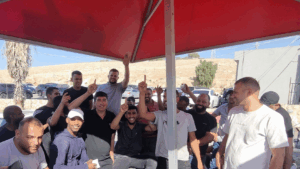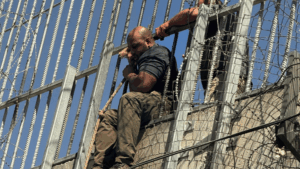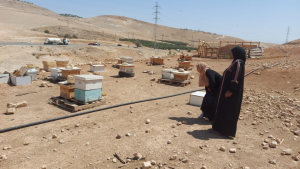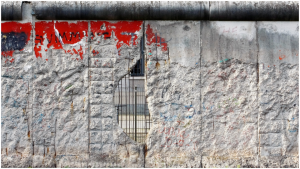[:en]The data of the Central Bureau of Statistics indicate enormous wage gaps between men and women, as well as between Jews and Arabs. These have made headlines and caused urgent debates at the Knesset Finance Committee. Not that the gaps are surprising, but the publicity has embarrassed Israel both in its own eyes and in front of the OECD, revealing its Achilles’ heel: the larger the gaps, the more the weak sectors of the population drag the country backwards, and the more likely is Israel to find itself exiled from the club of the developed nations. That was the gist of the discussion in Israel’s corridors of power.

Far less interest has been shown about those at the bottom of the table of data – Arab women. The data show that their average wage (about 5000 NIS/month, or $1400) amounts to 2/3 of the wage of Jewish women and 40% of that of Jewish men. Yet these findings do not expose the true severity of the situation, since only 22% of Arab women are actually present in the labor market (in contrast to 60% of Jewish women). It is no wonder that the Arab sector, a fifth of the general population, represent nearly half the economy’s poor.
How does this situation affect 320,000 women who live in villages and do not earn a living; how does it affect their children, the Arab population as a whole, and Jewish-Arab relations? After 8 years’ experience with unskilled Arab women, bringing them from their villages into agricultural jobs and conducting weekly empowerment meetings, my impression is that the general picture is worsening with time.
The poorer the family in which an Arab woman grows up (about 60% of Arabs are poor), the less chance she has to stay in school, and the stronger is the family pressure to marry her off, since she is regarded as a financial burden (and will continue to be so regarded by her husband). In most cases, the family decides for her who she will marry and when, depriving her of any control over her life. She is expected to give birth 9 months after the wedding, which—followed by subsequent births—blocks any possibility of studying or acquiring a profession after marriage.
Indeed, what could possibly have motivated her to continue studying? Her chances of finding a job near the home are low, and the ability to work outside the village is limited by lack of public transportation, shortage of kindergartens, and her lack of training in Hebrew. Even if she manages to overcome these obstacles, she will probably find that the best she can do is to work in farming, cleaning, or personal care to the elderly or infirm. Her wages will likely be below the legal minimum, without social benefits.
Thus, like it or not, she is stuck at home, sentenced to raise her family in poverty. She has no regular daily schedule or goal to aspire to, no status in the eyes of her family, and she suffers from low self-esteem. The communication with her husband is problematic, and she takes out her frustrations on the children. It is no wonder that violence against women and children is expanding, becoming a social plague in recent years. She neglects herself and her health, and by the age of 35 she is likely to suffer from obesity, high blood pressure, diabetes, and nervous instability.
The situation of the Arab woman reflects that of most of Arab society, dragging it backwards. She is aware of the very different life led by Jewish Israelis, a life so close and yet so far. Her response is to shut in on herself and turn to religion. She has no faith in a future of coexistence with her Jewish neighbors.
On the one hand, the neglect and indifference towards Arabs in Israel have turned the issue into a time bomb. On the other hand, Professor Eugene Kandel, the Head of the National Economic Council at the Prime Minister’s Office, holds that the absence of Arab women from the labor market is what keeps the Israeli economy from being among the 15 leading economies in the world. The time has come for Israel to move from words to action.
Michal Schwartz is responsible for the project “Women and Agriculture” in the workers’ association WAC-MAAN.[:de]The data of the Central Bureau of Statistics indicate enormous wage gaps between men and women, as well as between Jews and Arabs. These have made headlines and caused urgent debates at the Knesset Finance Committee. Not that the gaps are surprising, but the publicity has embarrassed Israel both in its own eyes and in front of the OECD, revealing its Achilles’ heel: the larger the gaps, the more the weak sectors of the population drag the country backwards, and the more likely is Israel to find itself exiled from the club of the developed nations. That was the gist of the discussion in Israel’s corridors of power.

Far less interest has been shown about those at the bottom of the table of data – Arab women. The data show that their average wage (about 5000 NIS/month, or $1400) amounts to 2/3 of the wage of Jewish women and 40% of that of Jewish men. Yet these findings do not expose the true severity of the situation, since only 22% of Arab women are actually present in the labor market (in contrast to 60% of Jewish women). It is no wonder that the Arab sector, a fifth of the general population, represent nearly half the economy’s poor.
How does this situation affect 320,000 women who live in villages and do not earn a living; how does it affect their children, the Arab population as a whole, and Jewish-Arab relations? After 8 years’ experience with unskilled Arab women, bringing them from their villages into agricultural jobs and conducting weekly empowerment meetings, my impression is that the general picture is worsening with time.
The poorer the family in which an Arab woman grows up (about 60% of Arabs are poor), the less chance she has to stay in school, and the stronger is the family pressure to marry her off, since she is regarded as a financial burden (and will continue to be so regarded by her husband). In most cases, the family decides for her who she will marry and when, depriving her of any control over her life. She is expected to give birth 9 months after the wedding, which—followed by subsequent births—blocks any possibility of studying or acquiring a profession after marriage.
Indeed, what could possibly have motivated her to continue studying? Her chances of finding a job near the home are low, and the ability to work outside the village is limited by lack of public transportation, shortage of kindergartens, and her lack of training in Hebrew. Even if she manages to overcome these obstacles, she will probably find that the best she can do is to work in farming, cleaning, or personal care to the elderly or infirm. Her wages will likely be below the legal minimum, without social benefits.
Thus, like it or not, she is stuck at home, sentenced to raise her family in poverty. She has no regular daily schedule or goal to aspire to, no status in the eyes of her family, and she suffers from low self-esteem. The communication with her husband is problematic, and she takes out her frustrations on the children. It is no wonder that violence against women and children is expanding, becoming a social plague in recent years. She neglects herself and her health, and by the age of 35 she is likely to suffer from obesity, high blood pressure, diabetes, and nervous instability.
The situation of the Arab woman reflects that of most of Arab society, dragging it backwards. She is aware of the very different life led by Jewish Israelis, a life so close and yet so far. Her response is to shut in on herself and turn to religion. She has no faith in a future of coexistence with her Jewish neighbors.
On the one hand, the neglect and indifference towards Arabs in Israel have turned the issue into a time bomb. On the other hand, Professor Eugene Kandel, the Head of the National Economic Council at the Prime Minister’s Office, holds that the absence of Arab women from the labor market is what keeps the Israeli economy from being among the 15 leading economies in the world. The time has come for Israel to move from words to action.
Michal Schwartz is responsible for the project “Women and Agriculture” in the workers’ association WAC-MAAN.[:]








